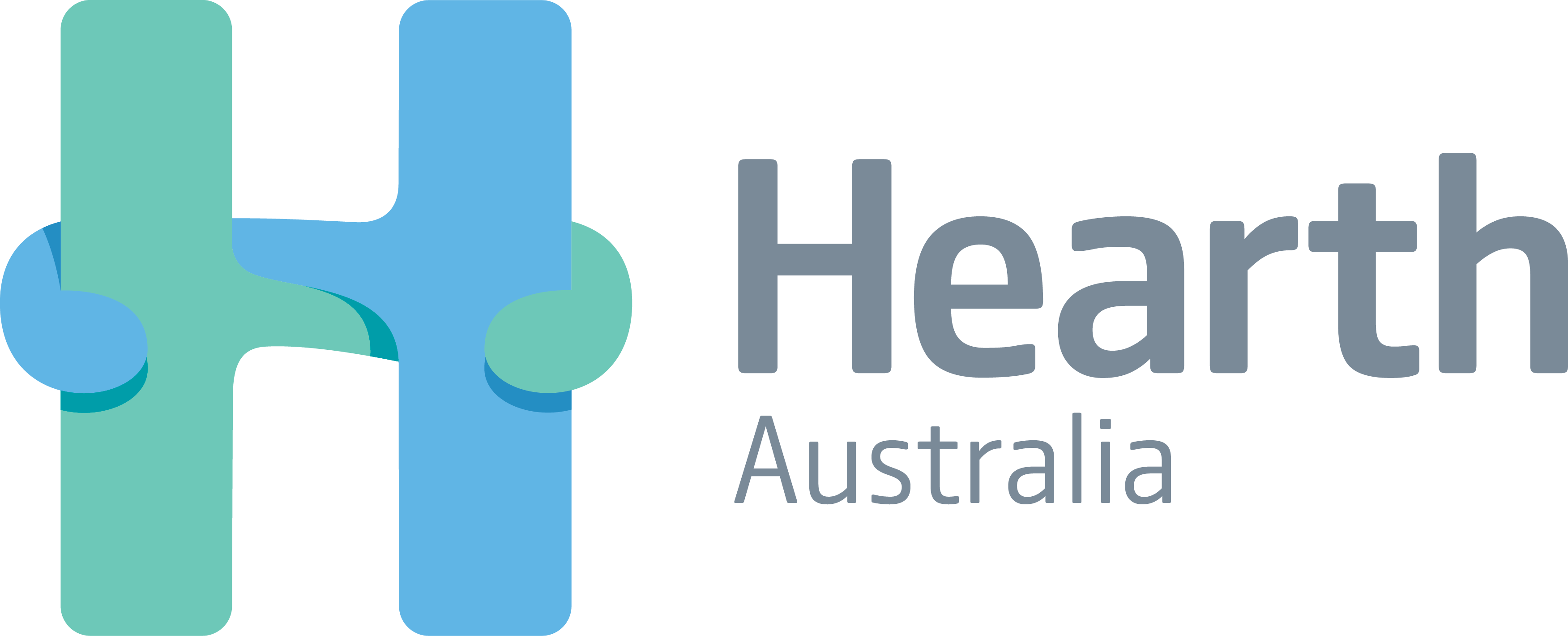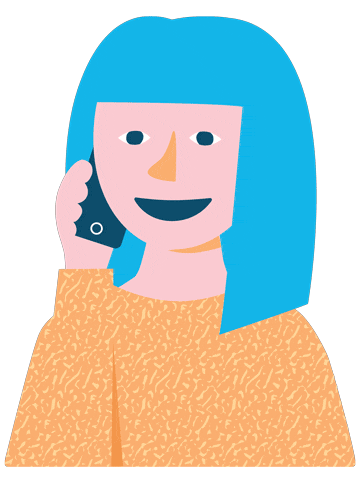Disability Support Workers Don’t Necessarily Need Experience or Qualifications Given the Proven “Hearth Approach” to Support
A Good Disability Support Worker Doesn’t Necessarily Need Qualifications or Experience.
At Hearth, when onboarding new Clients, we are often briefed by the Client that the “support workers for my child must be very experienced!”
Through both personal experience and my experience with Hearth however, the need for “experience” in many cases does not necessarily result in the best Disability Support Workers.
This is a key insight and learning for us which has been an important factor in the ability of Hearth to develop a very diverse and competent workforce to match the significant ongoing demand for NDIS Disability Support Worker services.
This insight and the Hearth approach to support services is at odds with several different professions and occupations in which experience and education generally are directly related to competence and the speed to competence in the job. For example, if you are being sued and you can afford it, you secure the most experienced and well qualified lawyer.
What are the Client’s Needs?
In disability support work however, the Client’s needs can be so varied that there needs to be extensive Client specific training and subsequent on the job or shadow training to build competence.
At Hearth, we support some of the most medically complex children in Victoria. Once we find a Support Worker with the right personality and attitude match for the Participants, we then train them in Participants home together with the Participant and the Allied Health and Medical Professionals.
There is no room for variation or error in these situations, so we do not look for people with “experience” but rather those with the right ability to listen, learn and take specific and detailed direction from the Client or Family ongoing or as required.
This is a great example of where we have built the appropriate support team who over time would be regarded as “experienced & qualified” within the disability sector, although originally the Disability Support Worker started with no or limited disability related experience.
How Do You Know the Training Requirements of a Client Before You Meet the Client?
The requirement for experience also relates to training in the sector. There is no one qualification currently that would equip an individual to support everyone in the disability sector. If there was, a single qualification it would not be the most efficient and effective way to approach ensuring the best equipped Support Workers for each Participant. Which is why up-front qualifications are always welcome at Hearth but not essential.
Participant support can involve such a wide variety of tasks including assisting with personal care, daily living, medication, meal preparation, light domestic duties, travel training, mobility, companionship, and community engagement.
That’s why Hearth’s approach is to firstly establish a relationship with the Participant and their goals, then match a Support Worker. As you would expect Hearth Participants vary enormously by personality, interests, goals, age, and disability. We then coordinate specific and necessary training to equip our Support Workers with the appropriate skills to succeed.
In my view there is a base level of common principles and approaches and beyond this, the training plan should be based on the skills and competence to support the Participant.
We provide our Support Workers with a friendly, personalised, flexible, supportive, and caring work environment, from the initial interview through to ongoing support once matched to a Participant.
The Importance of Integrating Communication Technology
Importantly, ideally where applicable, the Disability Support Worker should also be guided and trained by the entire support team including Allied Health, Educationalists and Medical Professionals who together guide and support the realisation of the Participants goals.
This support team should also be connected via leading technology to enable efficient ongoing communication, case noting and goal tracking. Hearth uses “RYVER™” for this purpose which has had terrific feedback from all stakeholders including families, Allied Health and Support Coordinators.
Often the Hearth Disability Support Workers spend the most time with the Participant, so the Hearth approach works best with the whole support team working well together guiding, training, and enabling the Disability Support Workers.
My Lived Experience
Fourteen years ago, in 2007 I had virtually no experience or exposure to life with a disability or Disability Support Workers. Then my son Tristan was diagnosed with Cerebral Palsy. Our life changed dramatically, and my wife and I realised that Tristan required a tremendous amount of support to live his best life.
Our Life Before the NDIS
Pre NDIS, we navigated the existing support organisations and systems to find what we believed to be the most appropriate support that we could get for Tristan. I have to say navigating the old system was extremely difficult and challenging. In the old system you would be allocated a Disability Support Worker for a couple hours a week if you were lucky. The Disability Support Worker may have never met my son or had a briefing on what his needs were so we would have to brief the Disability Support Worker on Tristan’s needs and how to execute them. The next week you could be allocated a completely different Disability Support Worker, so you would have to go through the whole process again! It wasn’t the ideal scenario for Tristan, the Disability Support Workers, or our Family!
Hearth Support Services was Born in 2017
When the NDIS came to fruition in 2016 with 9 years lived experience I seized the opportunity to create my own organisation to provide responsive support without the hassle. It is my belief that every person is truly different and unique and getting the match between the Disability Support Worker and the Client right is critical to ensure the best outcomes for the Client, the Disability Support Worker, and the Family.
As a result, Hearth Support Services was NDIS registered and launched in 2017. The initial focus of Hearth was recruiting, employing, matching, and training Disability Support Workers.
Based on my lived experience and exposure to over 100 Disability Support Workers, I thought that it was possible to develop a business approach that was Client centric, which meant understanding the Clients goals, interests and needs and getting the best match possible between a Disability Support Worker and the Client.
The Hearth Relationship Manager is Pivotal
To achieve this required a dedicated person to organise and coordinate the selection, matching and Client/Family liaison to ensure everybody is working together as a collaborative team. We called this person the Hearth Relationship Manager. The Hearth Relationship Manager is a pivotal role in the Hearth approach i.e.
The Hearth Matching Process
- Understand the Clients’ goals, interests and needs
- Find a Disability Support Worker who matches the Clients interests and is available when required
- Introduce the Client to the Disability Support Worker to see if there is a connection
- Ensure the Client is happy to proceed with shifts
- Make sure the Family/Guardian is comfortable to proceed with shifts
- Confirm the Disability Support Worker is comfortable and ready to proceed with shifts
- Organise any specific training that may be required prior to commencing shifts e.g., Hoist training
As part of the Hearth matching process the Relationship Manager physically introduces the Client to the Disability Support Worker before shifts start to ensure that all parties are comfortable with the match. In more challenging or complex assignments the Relationship Manager can also organize “shadow shifts”. Shadow shifts are organized to assist new Disability Support Workers to learn what is required to support the Client from a Disability Support Worker who has previously or currently supports the Client.
Hearth Relationship Managers Mentor Role
Another key role of the Relationship Manager is to coach, mentor, and assist each Disability Support Worker in their team with their career development. It is very reassuring for the Disability Support Worker to be able to call their Relationship Manager whenever required to discuss any challenges they have.
It is particularly reassuring when the Disability Support Worker knows that the Relationship Manager has met the Client and understands the situation and because of their experience they can listen and provide assistance or reassurance should the Disability Support Worker require it.
Disability Support Work is Rewarding
Supporting an individual to gain some or all their independence or realise a personal goal can be extremely rewarding as you have made a difference to someone’s life!
Disability Support Work can also be quite challenging, if correctly supported the challenges a Disability Support Worker faces each shift can lead to tremendous personal growth, which can be rewarding and satisfying.
In addition, there are many benefits to working as a Disability Support Worker at Hearth, including advanced training options, skills development, career development and flexibility.
What Personal Attributes Do Disability Support Workers Need?
To start a career at Hearth you don’t need experience or qualifications, we will provide you with the necessary training once you join Hearth.
We are looking to hire people who primarily have the right values, beliefs, attitudes, and the ability to communicate well by listening, observing, and responding appropriately. Having these personal attributes are not only applicable for the inexperienced Disability Support Worker, they can also form the basis for a lengthy career at Hearth.
These attributes give you the right approach to training based on the needs of the participant. We have supported the development of people who started with us as “inexperienced” Disability Support Workers but now are some of the most experienced Disability Support Workers in Australia and are making a big difference, to our Clients lives, based on our Clients regular feedback.
The Hearth Context
Hearth has evolved significantly since its inception in 2017. My approach has remained steadfast, and my belief is that to be good Disability Support Worker you don’t need any experience or qualifications, because we will provide you with the necessary training once you join us. However, that belief needs to be viewed in the “Hearth” context. Today Hearth is a NDIS registered and audited provider with hundreds of Clients and hundreds of Disability Support Workers operating 24/7, 365 days a year.
To meet the demand for our services and deliver consistent sustainable support we have had to develop our capability, capacity, and structure. As a result, Hearth has evolved over the years into an ecosystem of support for the Client and everyone else within the ecosystem, enabling us to provide sustainable long-term support i.e.
- The Client is supported by a Disability Support Worker or Workers
- The Clients and Disability Support Workers and are supported by the Relationship Managers
- The Relationship managers are supported by assistants called Client Support Offices (CSO) and Client Relationship Offices (CRO). They also have Client Team Leaders who support, guide, and mentor them.
- The Client, Disability Support Workers, Relationship Managers, CSOs, CROs, Client Team Leaders also have a broad team of experts to call on including Client Intake Team, Human Relations, Recruitment, Training, Payroll, Finance, Compliance, Communication, and IT
In the last 12 months we have expanded the Hearth ecosystem to provide even more support for our Clients i.e., Hearth has developed
- A Hearth Housing solution for Clients not eligible for NDIS Supported Disability Accommodation “SDA “(96% of NDIS participants)
- Hearth Allied Health services including Physiotherapy, Speech Therapy, Occupational Therapy and Positive Behaviour Support.
Career Opportunities for Disability Support Workers
The fantastic by-product of our ecosystem is that it has created tremendous career growth opportunities for everyone in the Hearth ecosystem and outside the ecosystem.
Today we have Team Leaders who started at Hearth as casual Disability Support Workers and have worked their way through the organisation to become Team Leaders. We also have numerous Relationship Managers and Client Support Officers who started their career with Hearth as a Disability Support Worker.
In another example we have a Disability Support Worker who was selected to undertake a PhD at Monash University in part due to her lived experience as a Hearth Support Worker.
We have also approached all our Disability Support Workers who are currently studying an Allied Health aligned degree with a view to joining Hearth Allied Health once they finish their qualifications.
If you are interested in becoming a Hearth Support Worker reach out to us, we are always hiring, and we would love to talk to you!
Life is short help us make a difference to somebody’s life today!
New to Support Work?
We’ve created videos to help you understand what is required in becoming a Support Worker!
First Published 17/9/21
Updated 1/10/21


